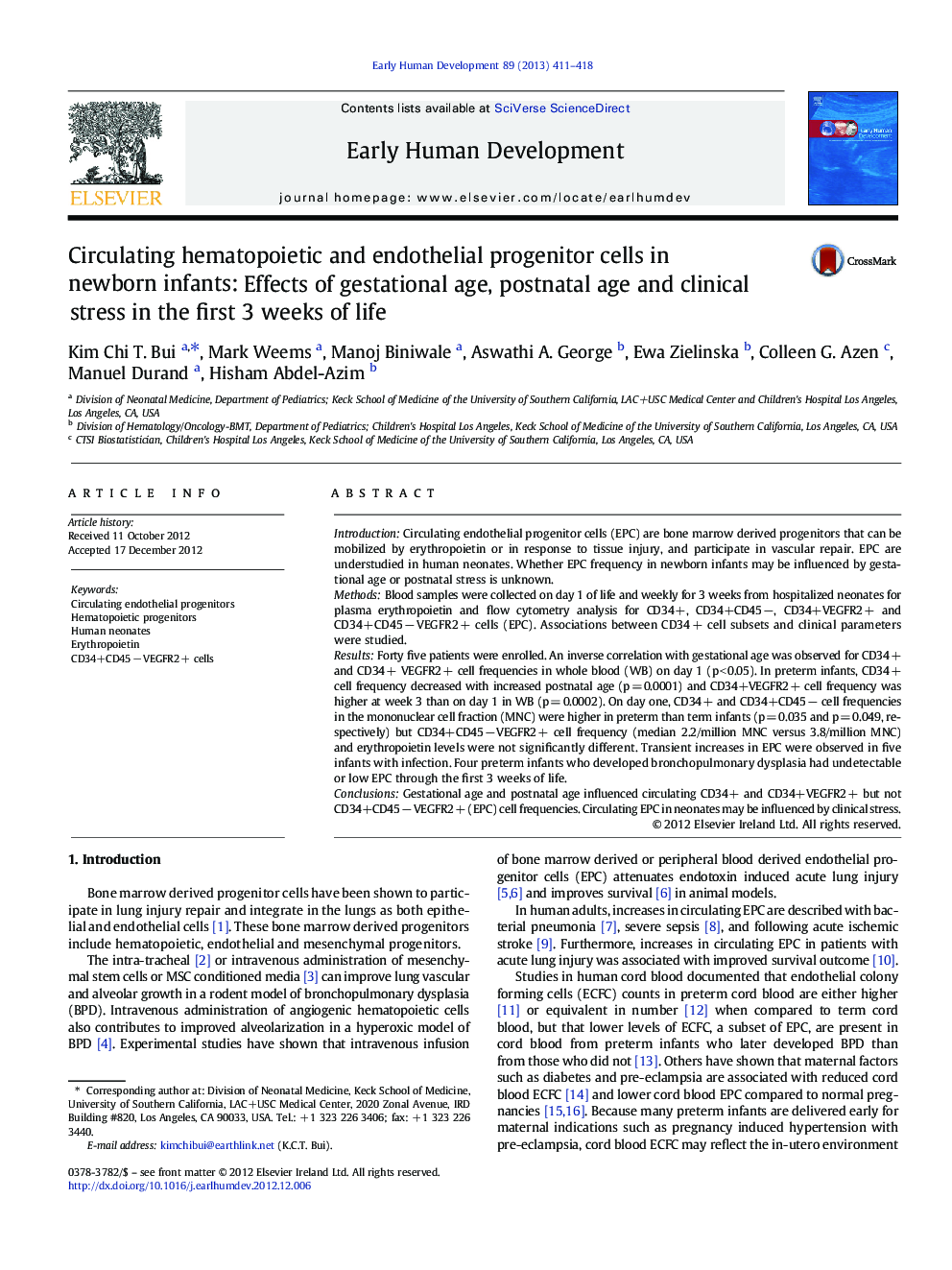| Article ID | Journal | Published Year | Pages | File Type |
|---|---|---|---|---|
| 3916687 | Early Human Development | 2013 | 8 Pages |
IntroductionCirculating endothelial progenitor cells (EPC) are bone marrow derived progenitors that can be mobilized by erythropoietin or in response to tissue injury, and participate in vascular repair. EPC are understudied in human neonates. Whether EPC frequency in newborn infants may be influenced by gestational age or postnatal stress is unknown.MethodsBlood samples were collected on day 1 of life and weekly for 3 weeks from hospitalized neonates for plasma erythropoietin and flow cytometry analysis for CD34 +, CD34+CD45 −, CD34+VEGFR2 + and CD34+CD45 − VEGFR2 + cells (EPC). Associations between CD34 + cell subsets and clinical parameters were studied.ResultsForty five patients were enrolled. An inverse correlation with gestational age was observed for CD34 + and CD34 + VEGFR2 + cell frequencies in whole blood (WB) on day 1 (p < 0.05). In preterm infants, CD34 + cell frequency decreased with increased postnatal age (p = 0.0001) and CD34+VEGFR2 + cell frequency was higher at week 3 than on day 1 in WB (p = 0.0002). On day one, CD34 + and CD34+CD45 − cell frequencies in the mononuclear cell fraction (MNC) were higher in preterm than term infants (p = 0.035 and p = 0.049, respectively) but CD34+CD45 − VEGFR2 + cell frequency (median 2.2/million MNC versus 3.8/million MNC) and erythropoietin levels were not significantly different. Transient increases in EPC were observed in five infants with infection. Four preterm infants who developed bronchopulmonary dysplasia had undetectable or low EPC through the first 3 weeks of life.ConclusionsGestational age and postnatal age influenced circulating CD34 + and CD34+VEGFR2 + but not CD34+CD45 − VEGFR2 + (EPC) cell frequencies. Circulating EPC in neonates may be influenced by clinical stress.
